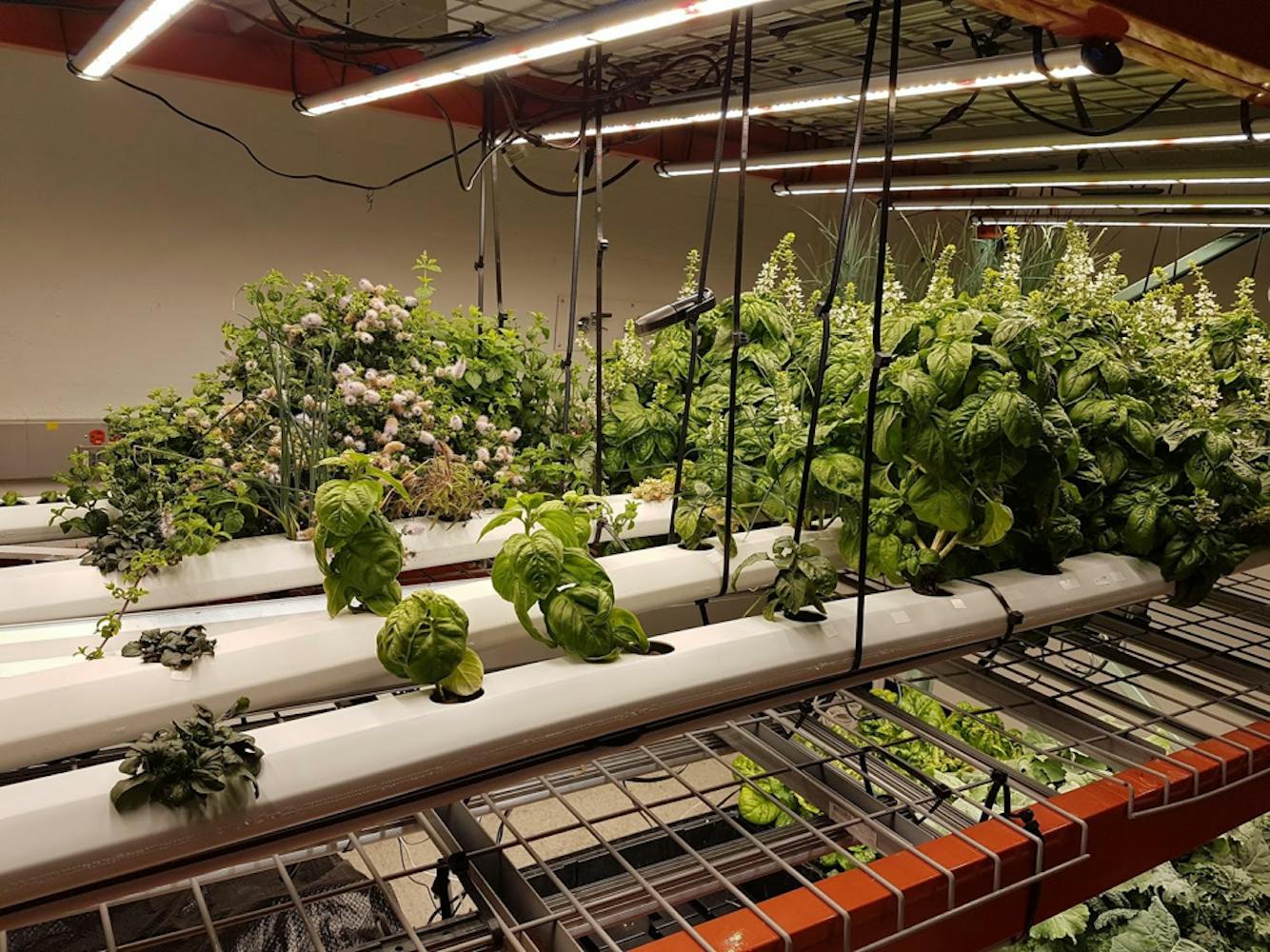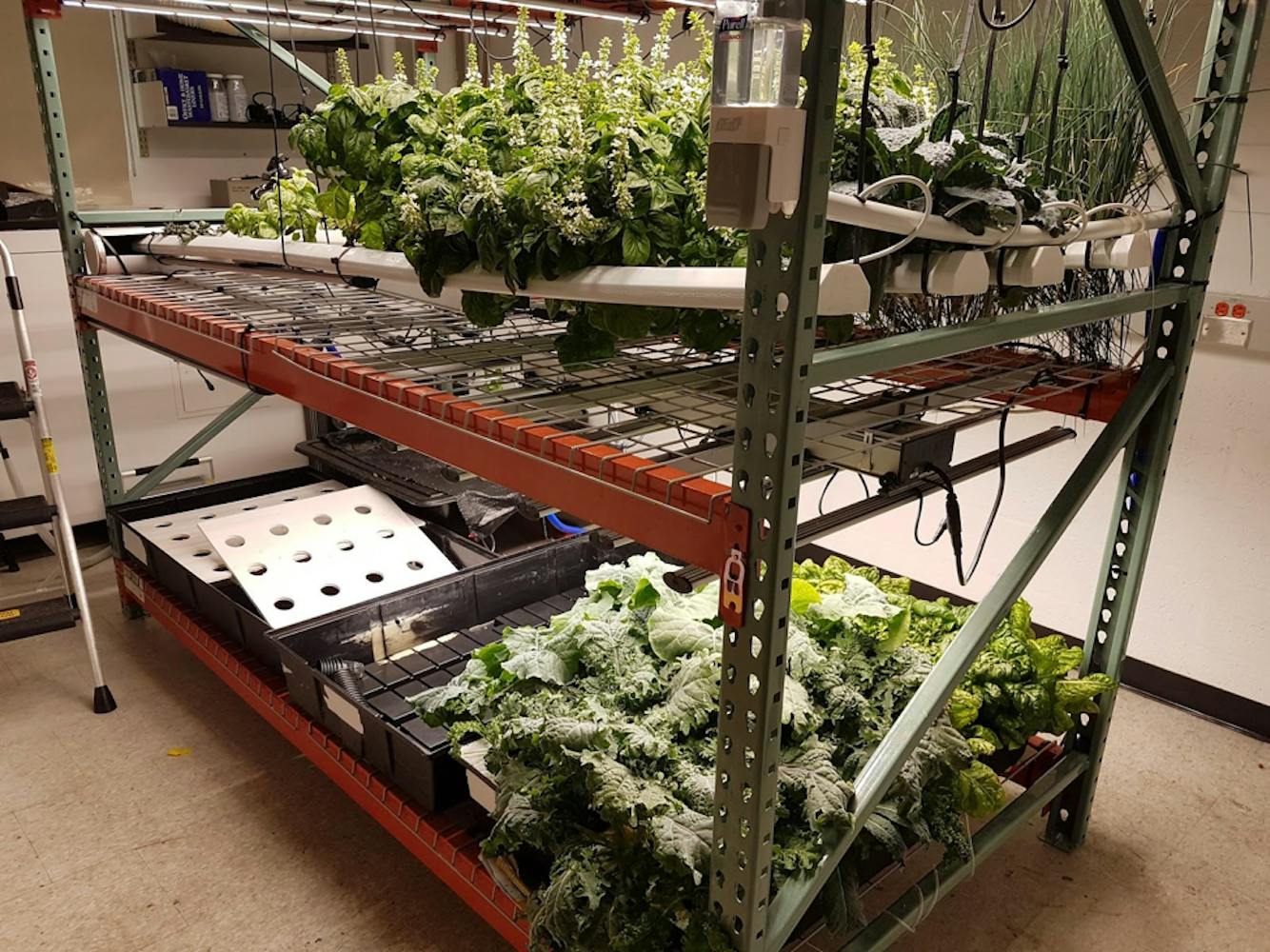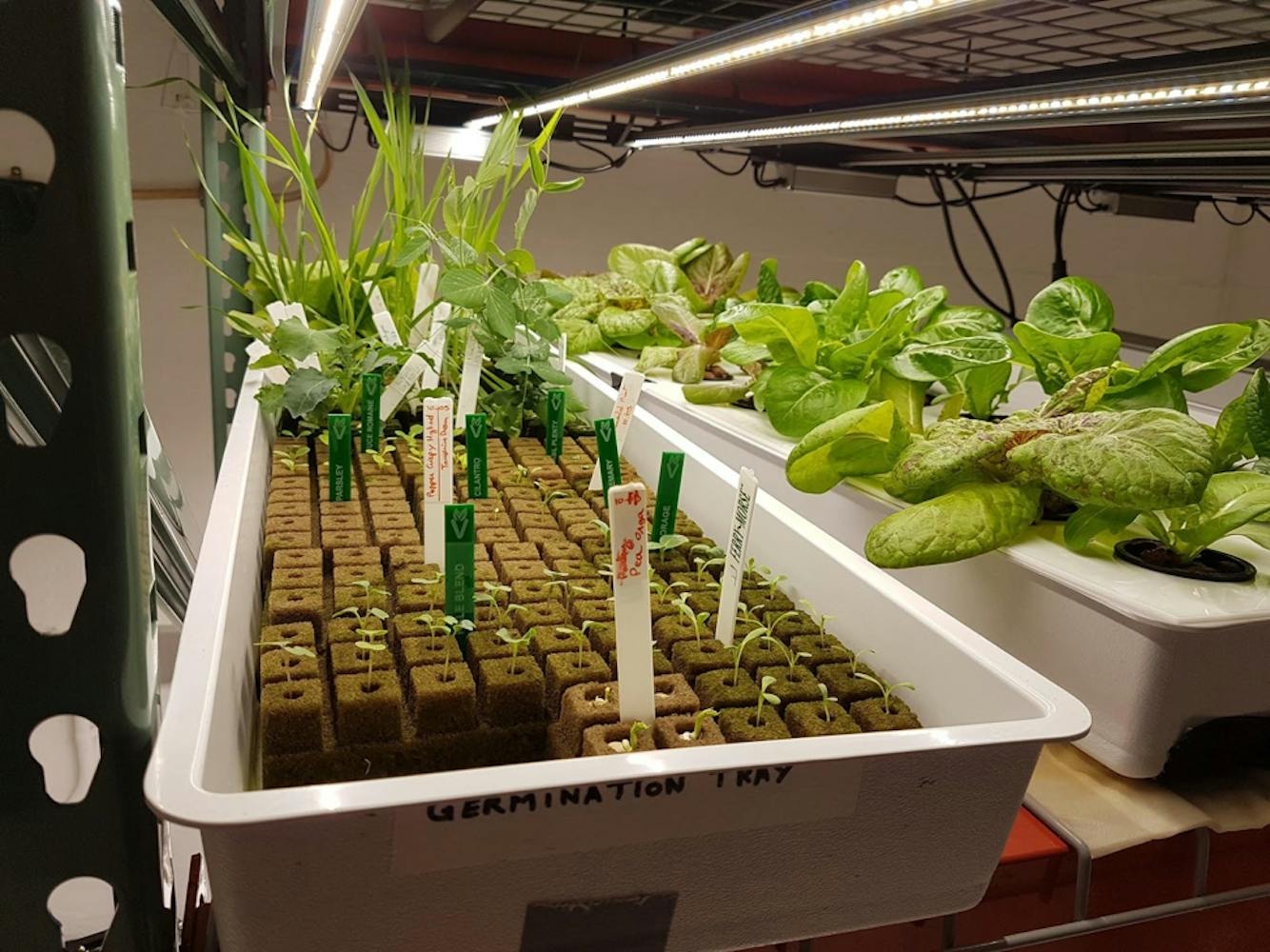Dr. Paul Gauthier, a postdoctoral research associate in the geosciences department, created the Princeton Vertical Farming Project (PVFP) this past April. The project is situated in Moffett Laboratory, which adjoins Guyot Hall, and was funded by the University’s Office of Sustainability and is directly related to the University’s Sustainability Plan.
In 2008, as part of the a larger plan to promote sustainability, the University committed to reduce its overall carbon dioxide emission levels to those of 1990 by 2020. The University's plan also set several more goals in the area of environmentalism and sustainable energy meant to address pressing environmental issues such as climate change, water scarcity, and air pollution.
According to Gauthier, the PFVP is a present-day attempt to expand upon these goals from almost a decade ago. Indeed, Gauthier identified the project as a key addition to the University’s larger sustainability plan.
“The goal of the project [PFVP] is to help students familiarize themselves with vertical farming here [at the University] and eventually create start-ups that employ the technique outside of the University,” explained Gauthier, adding that another goal of the project is to eventually provide produce to the dining halls as a step towards the University becoming completely self-sustaining.
Gauthier explained that, globally, the majority of start-ups utilizing vertical farming shut down after only a couple of years. This short life, he said, stems from the startups' inability to generate enough profit to meet the costs of applying vertical farming to produce farming. PFVP, he hopes, will help advance vertical farming technology from a scientific standpoint to remedy this problem. This kind of technological advancement, he added, will encourage students to build their own start-ups utilizing vertical farming technology.
Gauthier noted that the issues with popular use of vertical farms include a shortage of adequate technology as well as a lack of proper experimental data on the optimization of vertical farming efficiency. To study these problems, Gauthier's team is currently measuring the effectiveness of different vertical farming settings by testing how different lighting and water environments impact plant growth.
As a result of months of experiments and research, Gauthier and his team have enhanced the efficiency of vertical farms in a number of ways, such as reducing water usage and utilizing LED lights instead of sunlight to provide photosynthetic catalyst.
“We are using approximately 0.5 gallons of water for every kale plant,” noted Gauthier. “This is considered very efficient, and will save a significant amount of water when applied to large-scale fields.”
Gauthier added that vertical farming can be utilized not only as a reliable source of food in the future, but also as a means for capturing carbon dioxide emissions.
According to Gauthier, vertically farmed produce is not only sustainable and efficient, but grows rather quickly and is comparable in taste to commercial produce. Gauthier explained that basil plants in the vertical farm take approximately a month to grow, and with the use of special LED lights, are almost indistinguishable from basil sold in markets. According to Gauthier, this is attributable to his focus on the taste and quality of the vertical farm products rather than the quantity.
Kyra Gregory ‘19, a communications assistant for the Office of Sustainability and PVFP website manager, has been working with Gauthier from the start of the project and believes it will contribute to the University’s larger sustainability initiatives.
“Overall, seeing the vertical farm progress from its initial stage to where it is now is very inspiring for me. The amount of growth and student interest gives me hope for sustainability efforts at Princeton and in our generation in general,” said Gregory. She also explained that the PVFP team, which includes other students, hopes to make a meaningful impact on sustainability at Princeton and to highlight the benefits of vertical farming.

In addition to being a great chance to improve sustainability on campus, PFVP has left a mark on the team members for other reasons. “It's wonderful being involved with a team where people from different academic and social backgrounds can come together to work on this project that we all care deeply about,” Gregory said.
Reached out to Dr. Shana S. Weber, Director of Sustainability Office, and Ms. Kristi Wiedemann, Assistant Director of Sustainability Office, were unable to be reached for comment before publication.










